South Korea’s success-obsessed culture is finally reckoning with its dark side
Park Cho-bin wants to do something unusual in South Korea—take some time off.
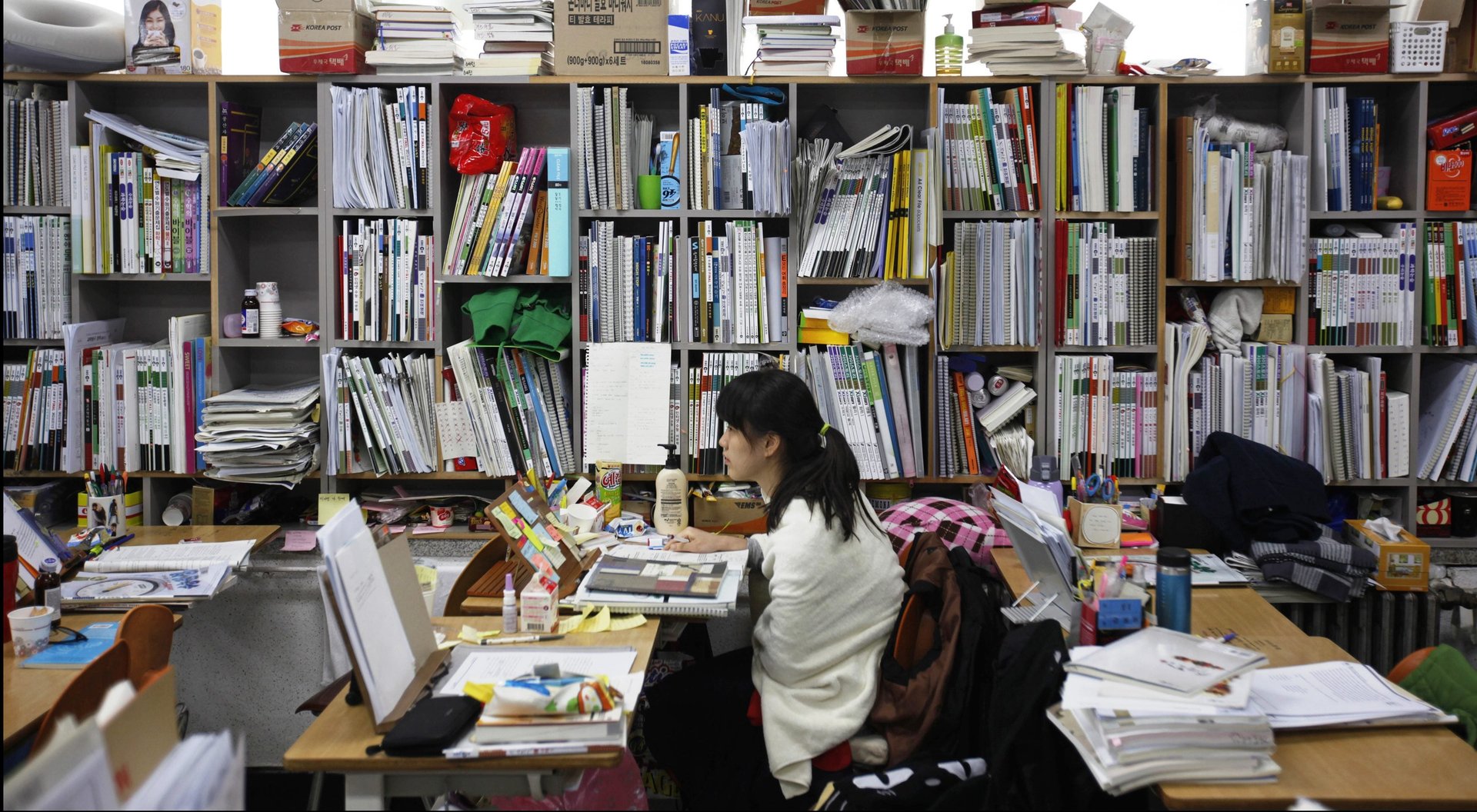

Park Cho-bin wants to do something unusual in South Korea—take some time off.
The 21-year-old recently quit her part-time data-processing job, and applied for a spot at Don’t Worry Village, a retreat of sorts for young adults figuring out their next steps. The house is the brainchild of 33-year-old Hong Dong-woo, who, after making money from a scooter startup, wanted to open a place where young Koreans could turn for a break from societal pressure.
Under a government program to redevelop abandoned houses in rural Korea—a growing problem as the population rapidly ages—he won funding to turn an unused house in the southwestern coastal city of Mokpo into Don’t Worry Village. For a small fee, attendees selected after going through a multi-stage interview process can live there for six weeks exploring different interests, getting to know new people, and relaxing in the countryside. Hong calls it a place where Koreans can go for “a chance at trying again.”
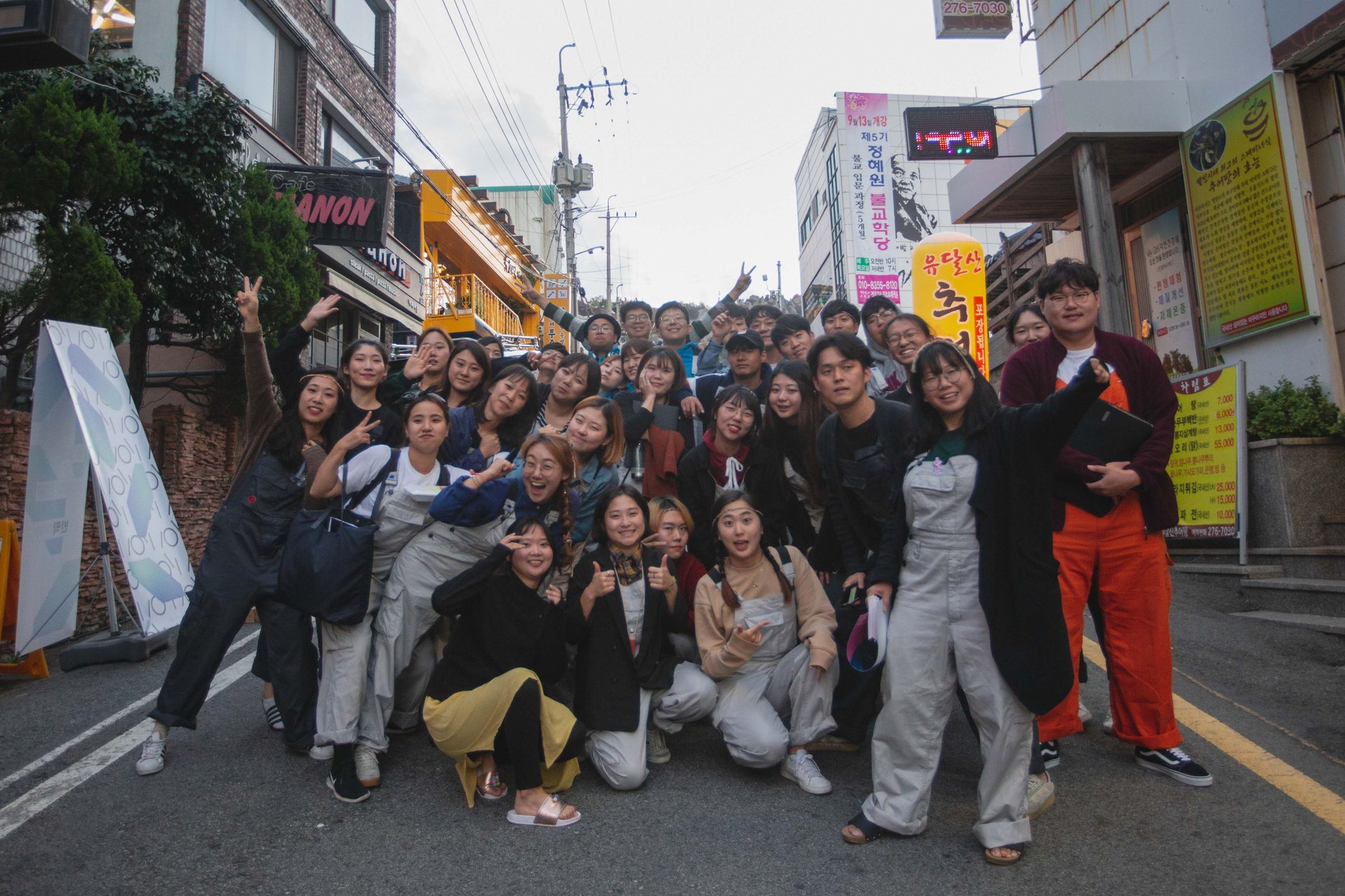
Park, who previously studied at a vocational college and now dreams of going back to school and becoming a music producer, says many young Koreans are made to feel that “failing once means that your whole life is a failure.” She says she didn’t sleep for three days in order to prepare her portfolio for the Don’t Worry Village application process.
#FailBetter
The idea of embracing failure is gaining traction in a country that’s starting to take stock of the effects on a population conditioned to live under immense pressure to succeed, starting from childhood. The pressure can come in many forms, including economic, academic, familial, and cosmetic.
While the hunger for success propelled Korea to develop in the post-war decades into the economic powerhouse it is today, it’s a formula that many Koreans, particularly the young, feel no longer delivers. That has given rise to popular narratives in recent years depicting the country as a kind of hellscape.
“This was a country of ‘success’ before; we tried hard, and success came accordingly… At the same time, Korea has become a society that values only success and economic achievement and became [too] competitive,” says Lee Jae-yeol, a sociologist at Seoul National University who published a book this year titled If You Were Born Again, Would You Live in Korea, which explores the reasons behind Korea’s widespread unhappiness and high suicide rate.
The government has taken note of those concerns. Last year, it held the first ever Fail Expo in Seoul—inspired by both the International Day of Failure, which was created in Finland in 2010, and the Museum of Failure in Sweden, which opened in 2017—with the aim of changing public attitudes toward failure and success. President Moon Jae-in, who is an advocate of taking life at a slower pace, visited last year’s expo (link in Korean) and acknowledged the hardships facing small business owners and young jobseekers. “Let’s all get through this hard time together,” he wrote on a message board.
The second Seoul expo opened in September with the theme #FailBetter. In another context, the slogan could be read as aspirational. But in Korea, where conditions for young people remain challenging, it might be interpreted as an impatient command.
Youth unemployment in Korea has remained at around 10%, while many young people, including college graduates, are stuck in part-time or contract jobs. At the same time, there’s a commonly held fear that a young person who doesn’t land a job at one of the country’s top conglomerates, such as Samsung or Lotte, or in the civil service, risks being written off—and that there’s little social support for pursuing a different path.
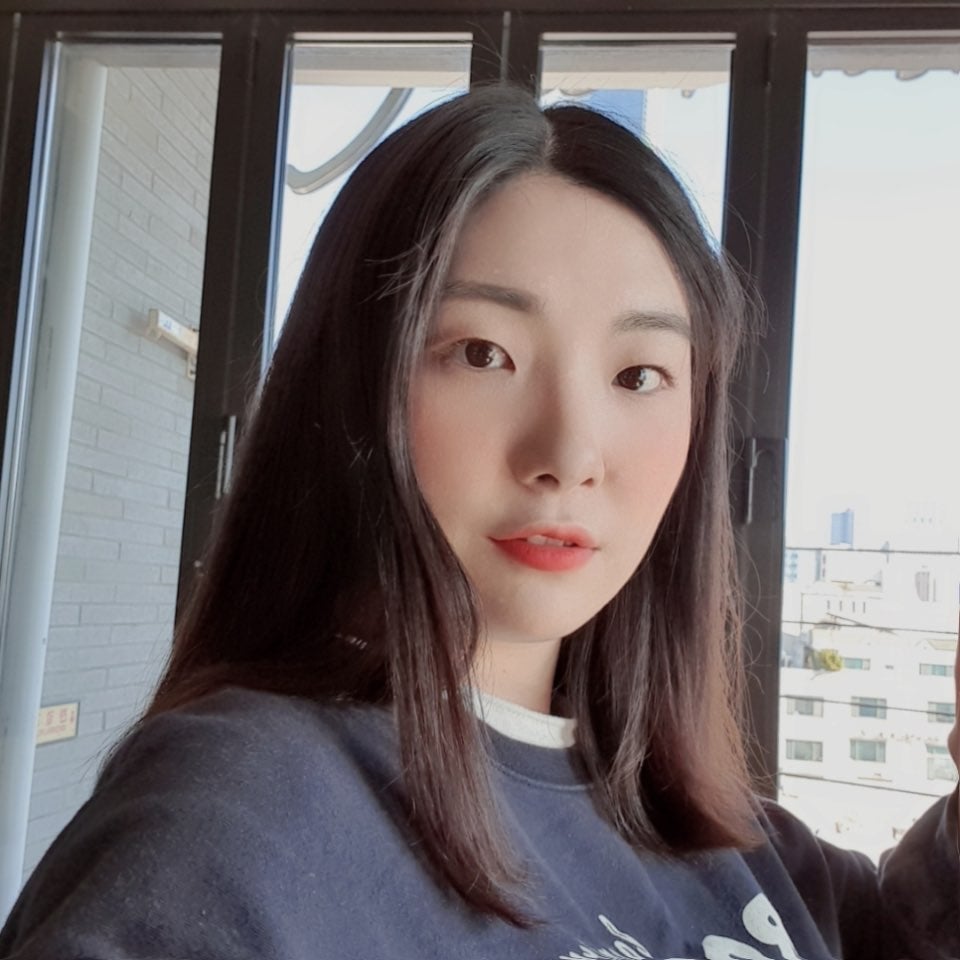
Park, the aspiring music producer, says she initially decided to start working instead of getting a college degree because she found a job that was stable and paid well, a rare feat. “But as time went on, I felt like I was missing something, and I started feeling envious of friends who went to college to pursue their dreams,” she says. For now, she’s supporting herself with savings and part-time jobs, as she prepares for her future music studies.
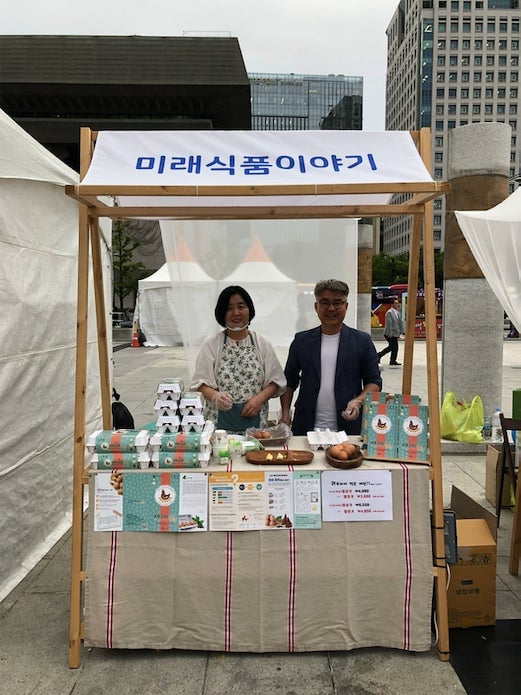
“I felt like I was standing alone”
At this year’s failure expo, held on a grassy strip running through the center of Seoul’s giant Gwanghwamun Plaza, attendees perused exhibit booths showcasing services such as government support for struggling small-business owners, and bankruptcy advice. A cluster of booths peddled products from entrepreneurs who, having failed in earlier business ventures, managed to start afresh. Among them was Han Dong-seok, the CEO of the Jeju Cricket Producers’ Association, which sells eggs from cricket-fed chickens. His first business, which recycled printer cartridges, was a failure.
“I couldn’t see any future at first. I felt like I was standing alone on hot asphalt,” says Han, who came up with his second business idea while watching a documentary on TV about edible insects. “Eggs are immune to any economic situation.”
Some who were there were contemplating a looming failure.
Scott Park, in his 40s, went to Fail Expo seeking advice as he considered closing down his fabric-manufacturing business because of economic difficulties. (Korea’s export-led economy is facing growing headwinds amid a broader global slowdown in trade.) Park says he found it difficult to face the prospect of failing in a culture with what he sees as an insufficient safety net for people who fall on hard times, such as the people he was recently forced to lay off.
“If you fall in Korea, you go directly to the bottom. How can anyone handle that?” he asks.
A society in need of healing
Self-help and mental-wellness themes had a significant presence at the Fail Expo. There were booths with hammocks, tarot-card readers, and painting sessions called “Experience! Sympathize with failure!”—which illuminated the darkest side of Korea’s obsession with success.
Just days after the expo concluded, the Korean government released the latest data on causes of death for 2018. Following a steady decline in the suicide rate since 2011, the number of people who took their own lives last year increased by 9.7% from the previous year, putting Korea’s rate of suicides at 24.7 per 100,000 people—the highest in the OECD group of 36 countries and retaking the top spot from Lithuania.
Suicide was the leading cause of death in 2018 among Koreans aged 10 to 39, with the government noting that reports of celebrity suicides helped fuel copycat incidents. K-pop star Sulli, who was the target of bullying due to her outspoken stance on women’s issues, was found dead on Oct. 14 in a suspected suicide.
There is a close link between economic failure and suicide in Korea, where household debt is high and stories of family murder-suicides stemming from financial problems abound. According to a report in the Korea Herald in 2014, Koreans in every age group except children and teenagers said financial trouble was the top reason that drove them to consider suicide.
Anger over the cost to failure—and the price of success—literally surrounded the expo. On its perimeter, crowds protested over educational perks allegedly granted to the daughter of the justice minister whom president Moon had recently appointed, a reminder of economic divisions deepened by an intensely competitive society and entrenched by the country’s elite. The minister, Cho Kuk, who at one point extended his “deepest apologies to the younger generation,” eventually resigned.
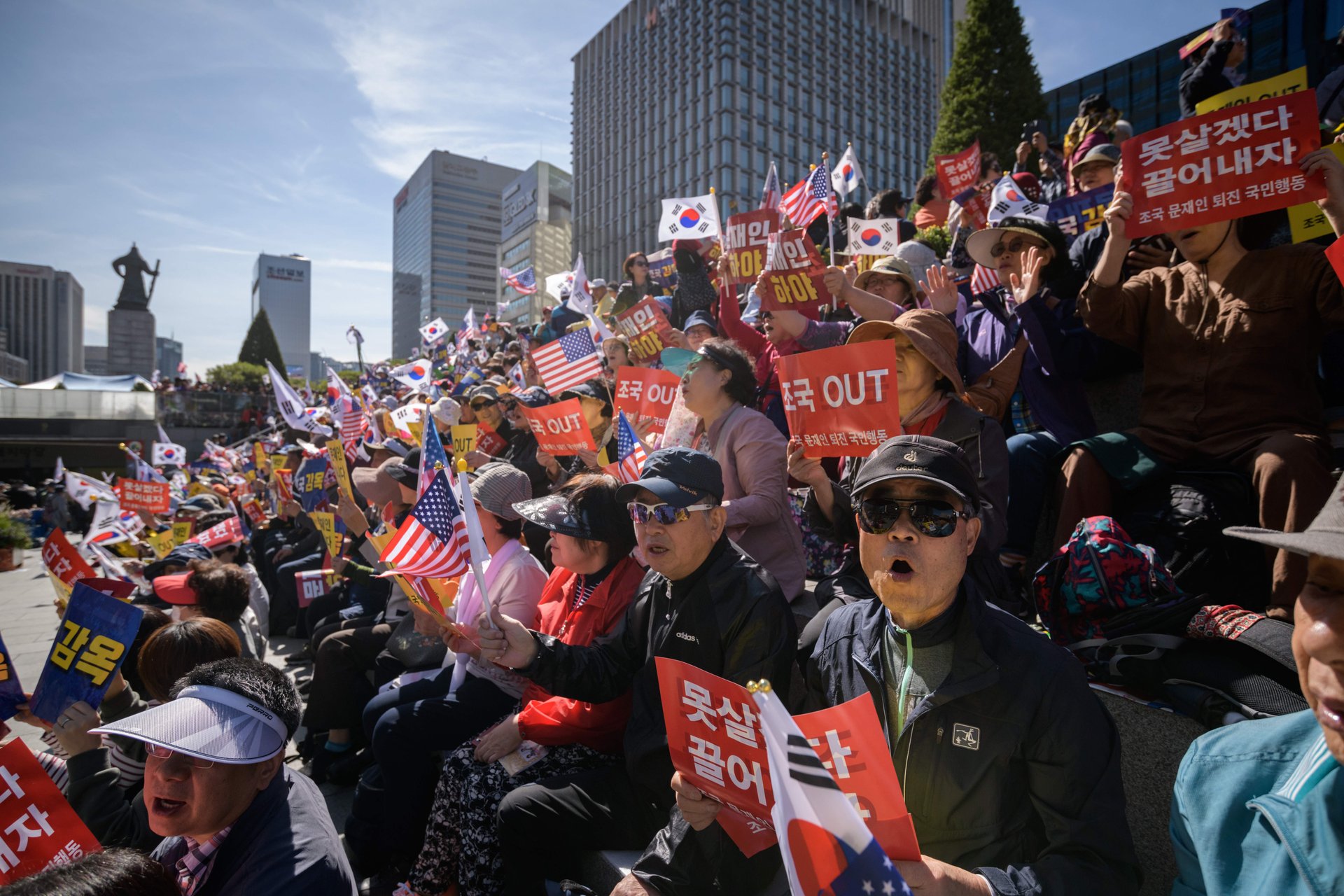
Yun Tae-woong, a deputy director from the interior ministry, which organized the expo, acknowledged that the country’s high suicide rate was one of the reasons why the government was encouraging people to think differently about failure.
“Society needs more healing,” says Yun, “even if it’s not today.” He gestures to the ear-splittingly loud protest crowds.
As for Park Cho-bin, the aspiring music producer, some two weeks after she submitted her application and underwent multiple rounds of interviews, she received the news—she was not selected for Don’t Worry Village. The reason she says she was given: budgetary constraints.
Park says she was disappointed at not being chosen. “Getting into the village itself was like a competition,” she notes. She says she will not be applying again.